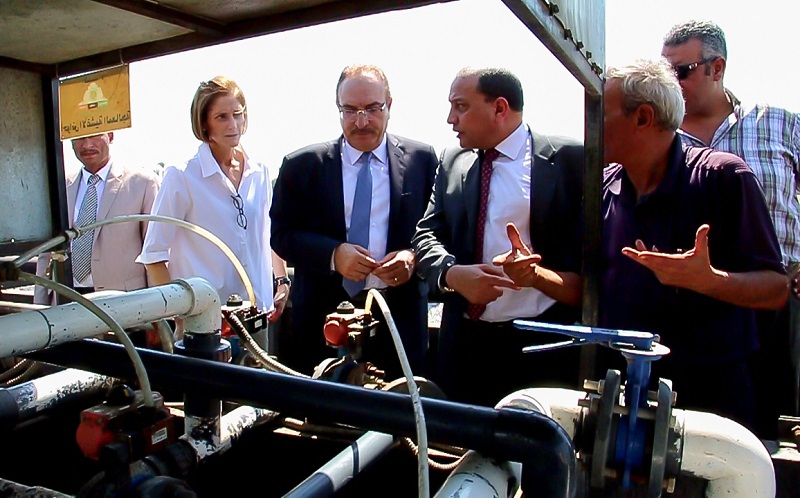President of Beni-Suef University in a visit to sewage treatment project in Al-Basateen village accompanied by the governor and the American delegation
16 Jul 2018

Prof. Dr. Mansour Hassan, President of Beni-Suef University, accompanied by Eng. Sherif Habib, Beni-Suef Governor and Sherry Carlin, Director of the US Agency for International Development in Egypt, visited the sewage treatment project in El-Basateen Village. The visit comes within the framework of fruitful cooperation between the University and the governorate in the field of Sustainable development.
The University President listened to project's detailed explanation by the Governor as a "pioneering experience", implemented using the internationally approved MBR system in sewage treatment systems to identify all the details of the project from "design, manufacture and operation" to evaluate the project technically and economically.
The university president praised the project which eliminated a chronic problem experienced by the village. He pointed out some aspects of the project which were implemented in MBR system, including station's civilized design and the absence of bad smell of sewage, which represents a qualitative leap in the field of drainage in villages. In addition to the quality of treated water that is suitable for irrigation and agriculture, which is considered a new water resource as well as implementation low cost and duration.
For his part, Beni-Suef governor reviewed a summary of the project starting from the reasons for thinking about it, especially as the problem of drainage at villages is one of chronic problems and solving it through conventional methods is hindered by some obstacles that prevent the implementation of the whole system.
The MBR system requires much less space than the conventional method, which means reducing the cost of construction and land price. The water produced is of very high quality and can be re-used in agriculture or industrial purposes.In addition, this type of treatment is supported by the American Agency for Environment (ERA) and the World Health Organization (WHO).